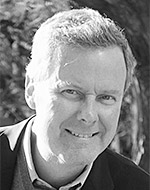Don’t be a “leader”
Successful leaders must recognize that their role is much more than the endgame of a specialist. Leading requires constant learning and a balance of specialized and broad knowledge.
The admonition “don’t be a leader” can raise eyebrows, especially when it comes from someone like me, who researches, writes, and speaks about leadership. So let me explain. More and more often, I see that people define being a leader as an endpoint, a destination, a permanent designation. In this way of thinking, becoming an executive who formally leads others is akin to earning a merit badge to add to all the other skill badges one collects throughout his or her career.
It’s disturbing that leadership is perceived as one more specialty, given that central to leading effectively is having a generalist’s mind- and skill-set. Leading is part of the human component of organizational life and thus requires an understanding of current psychology, sociology, intra- and inter-organizational dynamics, decision making, and more. It takes curiosity as wide as it is deep.
Management is about the present, and leading is about the future, as Linda Ginzel of the University of Chicago’s Booth School noted in her book, Choosing Leadership. The future is full of uncertainty and ambiguity, particularly in a knowledge economy where innovation and agility differentiate winners from losers. Here is where the abilities of generalists are so valuable. They draw upon multiple domains to discern patterns revealing what the organization, its customers, employees, and investors will want, need, and perhaps demand next.
To be sure, getting things done in an organization, delivering results quarter after quarter, requires competence, industry knowledge, and the rigorous discipline of management, which are the products of specialization. How then does one go about bringing harmony to these potentially conflicting demands?
Rachel Happe, founder of the Community Roundtable, a consultancy helping organizations build social communities, says it can be difficult to find leaders who balance generalist and specialist tendencies. When we spoke, she lamented the challenge of finding people who are strong at strategy, technology, operations, and social science. A tall order? Perhaps, though she believes it is essential for a person to have all of these skills to successfully lead complex initiatives. Customer experience is an example of a specialty that requires “generalism.” “If you have only one lens with which to look at complexity, it can be overwhelming,” she said. “With multiple lenses, you see patterns that enable you to navigate the complexity” and solve novel problems.
One way is to frame the generalist/specialist tension is to consider it as an “and” dilemma rather than an “either/or” choice. Along those lines, Kenneth Mikkelsen and co-author Richard Martin coined the term neo-generalist in their book of the same name to describe people who can be both generalist and specialist. Mikkelsen told me, “Having many interests helps you draw on a wide range of metaphors to explain things. It helps you see connections between distinct domains. To solve problems of interconnectedness, we need these people.”
Mikkelsen’s and Martin’s book tells the stories of accomplished individuals who have led successfully because they moved beyond hyper-specialization. Among them are Pablo Picasso and Albert Einstein. These two were the best at their specialties — art and mathematics, respectively — yet their breakthrough contributions wouldn’t have been possible without their fascination with philosophy, poetry, politics, and more. They were constantly pursuing new lines of inquiry to push and expand their thinking.
Mikkelsen added further insight: Leadership and management are often portrayed as opposite ends of a continuum. It is frequently an implicitly sloped line with leadership elevated — I’ve heard variations on “Sally’s a real leader, but Bob’s just a manager” too many times. Mikkelsen suggested bringing the ends of the continuum together to form a circle. Imagine it as a clock face. The ambidextrous superstars strong at leading (generalists) and managing (specialists) are at 12 o’clock. At 3 o’clock are those with more developed abilities to lead than to manage — think of them as right-hand dominant. At 9 o’clock are their opposites, who are better at managing than leading, the “lefties” in your rotation. At the bottom, at 6 o’clock, are those who are weak at both leading and managing (but who might be terrific solo contributors).
With such insights, organizations can cultivate both specialists and generalists. There is no reason not to expect someone to demonstrate proficiency at both leading and managing, in “specialism” and generalism. Pairing Sally, the strong leader, with someone with operational expertise may help move her from 3 o’clock up to 12. Similarly, Bob the manager may grow from 9 o’clock closer to 12 through development and mentoring.
There is no reason not to expect someone to demonstrate proficiency at both leading and managing, in “specialism” and “generalism.”
Specialism is essential — in roles and situations where it delivers the desired results. If I ever need open heart surgery, I want a surgeon who has done the procedure over and over again. However, proficiency as a physician doesn’t necessarily translate into the leadership capacity to be a great health system CEO. Leading necessitates going broad, requiring what my colleagues at Harvard and I call meta-leadership. It is a holistic perspective integrating understanding of the self, the context, and the rich panoply of relationships inherent in complex environments.
Here are three concrete steps you and your organization can take to cultivate and harvest the benefits of specialist–generalists:
- Happe advised exploring domains where “there is no right answer,” such as the arts and humanities. “You learn to analyze and make decisions amid ambiguity,” she said.
- Incorporate mind-expanding, curiosity-inducing activities in leader development programs. These can include visual thinking exercises and sessions with provocative thinkers in fields such as anthropology or music that are seemingly unrelated to one’s “day job.”
- The next time you’re working with an executive recruiter, ask him or her to find at least one artist, poet, or philosopher with the requisite expertise and experience for the job opening. Even if you don’t hire that person, he or she will challenge your thinking (and the recruiter’s) and expand your definition of what’s possible.
Everyone has heard the beginning of the adage “jack of all trades, master of none.” However, few are familiar with the rest of the saying: “Oft’ times better, than a master of one.”





